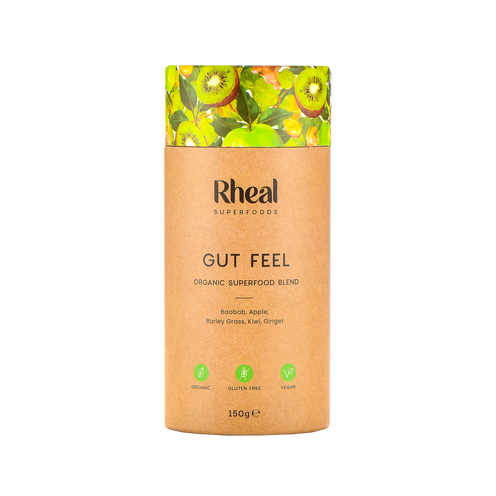Is caffeine actually good for us? Let's get to the bottom of this hotly debated topic once and for all
We love a cuppa ☕️
According to the Tea and Infusions Association, us Brits drink 98 million cups of coffee and 100 million cups of tea every single day. That’s a lot of caffeine!
But how much is too much caffeine? And what are the pros and cons of it?
The NHS recommends that the average adult has no more than 400mg of caffeine each day, this drops to 200mg if you are pregnant.
What does that look like in terms of our favourite drinks then? Let's take a look.
What are the benefits of caffeine? 🤔
We often hear about caffeine being bad for us, as well as reasons why we should reduce our intake - or avoid caffeine altogether.
Some people are more sensitive to caffeine than others, so may find that it does not agree with them - especially in high amounts.
However, research has shown that moderate caffeine intake is not only harmless but can have a number of benefits too.
A study by Eskelinen and Kivipelto (2010) found that 50-300mg of caffeine each day sees benefits such as increased energy, alertness and a better ability to concentrate.
Moderate caffeine intake has also been associated with “less depressive symptoms and fewer cognitive failures” (Lara, 2010). So, that afternoon cuppa could give your mood a welcome boost too.
Two further UK based studies by Simon et al (2022) and Zhang (2021) found that moderate caffeine consumption could be associated with better cardiovascular health and help to reduce the risk of stroke and Dementia too.
It's also important to note that caffeine from natural sources - such as Organic coffee, guarana and green tea - also comes alongside other beneficial nutrients such as vitamins, minerals and antioxidants.
The Disadvantages of (too much) caffeine 👎
On the flip side, higher doses of caffeine (300mg+) are likely to have negative effects on the body and mind - causing trouble with anxiety, sleeping and an increase in heart rate (Eskelinen and Kivipelto, 2010).
Of course, these are all things that we'd look to avoid. The good news is that they are easy avoidable - if you enjoy caffeine from the right sources and in moderation.
Excessive caffeine consumption can also lead to a “crash”, causing problems including headaches, irritability, fatigue and brain fog. So you might get a surge of energy just after you enjoy your caffeine, but it will likely be closely followed by a caffeine crash.
It is also important to note that most available research excludes looking at the effects of caffeine on individuals who are neurodivergent, for example those with ADHD.
The Verdict ⚖️
The ‘right’ amount of caffeine can be good for you and helps to increase focus, alertness and improve mood. But too much caffeine can lead to problems with anxiety, irritability and sleeping.
The important point here is that the right amount of caffeine varies person to person and no two individuals are the same. As long as you stick within the daily recommended limit for caffeine (400mg for most), it's usually trial and error to find out just how much works best for you.
So enjoy your cup of tea or coffee, but like with anything, just know your limits!
Rheal Superfoods: Natural caffeine meets energising superfoods 🚀
If you’re looking to reduce your caffeine consumption, and want all the added nutritional benefits of superfoods too, make a swap to either Shroom Coffee, Magic Matcha or one of our tasty Energy Bars.
How much caffeine is in Rheal?
With a recommended daily intake of 400mg caffeine, you can enjoy all of your favourite Rheal Superfood products together daily.
What's more, with naturally energising adaptogens and medicinal mushrooms, you don't have to compromise on better energy or suffer the post-caffeine slump either.
Winner, winner.

References
- https://www.tea.co.uk/tea-faqs
- https://britishcoffeeassociation.org/coffee-consumption/
- Eskelinen MH, Kivipelto M. Caffeine as a protective factor in dementia and Alzheimer's disease. J Alzheimers Dis. 2010;20 Suppl 1:S167-74. doi: 10.3233/JAD-2010-1404. PMID: 20182054.
- Lara DR. Caffeine, mental health, and psychiatric disorders. J Alzheimers Dis. 2010;20 Suppl 1:S239-48. doi: 10.3233/JAD-2010-1378. PMID: 20164571.
- Simon J, Fung K, Raisi-Estabragh Z, Aung N, Khanji MY, Kolossváry M, Merkely B, Munroe PB, Harvey NC, Piechnik SK, Neubauer S, Petersen SE, Maurovich-Horvat P. Light to moderate coffee consumption is associated with lower risk of death: a UK Biobank study. Eur J Prev Cardiol. 2022 May 6;29(6):982-991. doi: 10.1093/eurjpc/zwac008. PMID: 35048949.
- Zhang Y, Yang H, Li S, Li WD, Wang Y. Consumption of coffee and tea and risk of developing stroke, dementia, and poststroke dementia: A cohort study in the UK Biobank. PLoS Med. 2021 Nov 16;18(11):e1003830. doi: 10.1371/journal.pmed.1003830. PMID: 34784347; PMCID: PMC8594796.
- Sajadi-Ernazarova KR, Anderson J, Dhakal A, et al. Caffeine Withdrawal. [Updated 2023 Aug 8]. In: StatPearls [Internet]. Treasure Island (FL): StatPearls Publishing; 2023 Jan-. Available from: https://www.ncbi.nlm.nih.gov/books/NBK430790/





